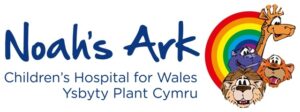What we do
Our vision is that any parent, wherever they are, can access information on their child’s medicines that they need and can trust.
If you are a parent or carer of a child who needs to take medicines – whether once a day or once every few years – we know you need good quality and reliable information.
Read on to find out:

- what type of information is covered in our medicines leaflets and videos
- who has endorsed our information
- how we develop our information
- ways that you can help share Medicines for Children with other families
- who is the team behind Medicines for Children
We have a new FAQs (Freqently Asked Questions) section which covers many of the questions around how to give medicines safely and about the work of Medicines for Children.
You can view our FAQs page by clicking here.
About our medicines leaflets and videos
Medicines
Our medicines leaflets cover many of the medicines that are prescribed or recommended to children and young people by children’s doctors (paediatricians), pharmacists or nurses.
They answer your questions, including: Why does your child need to take the medicine? When do you need to give the medicine? What if you forget to give the medicine, or give too much? Are there any possible side-effects (effects that we don’t want)?
How to give different types of medicines
Medicines come in many different forms. Your child’s medicine may be available as a tablet, capsule or liquid (to give using an oral syringe or medicine spoon). You may need to inject a medicine, use a suppository or enema, or give medicine in the eye or ear.
Go to Types of medicines for our videos and leaflets showing you how to give medicines
General information
Our general information leaflets give you tips about how to give medicines safely, including a guide to how to help your child swallow tablets for the first time, general advice on giving antibiotics, why some children’s medicines are ‘unlicensed’ and what to do if your child is experiencing side-effects from their medicine.
Independently endorsed
Medicines for Children leaflets have been endorsed by:
| Royal College of General Practitioners |  |
| Royal Pharmaceutical Society |  |
| Noah’s Ark Children’s Hospital for Wales |  |
| Cardiff and Vale University Health Board |  |
Produced by experts in children’s medicines
Our information is written and checked by experts in children’s medicines – with real world experience of the concerns and issues parents can face when giving their child medicines at home.
Paediatricians (children’s doctors), pharmacists and other healthcare professionals, including nurses, write and review our medicines leaflets. They make sure that the advice we provide is up-to-date and accurate. Using their experience gained from prescribing medicines in clinics and hospital settings, they have the knowlodge and understanding to advise on the medicines and topics that we need to cover.
Parents and carers are the other experts in children’s medicines – they have been at the heart of this programme since the beginning. Through surveys and focus groups, parents and carers across the country have told us what information they need to know about giving medicines to their child, and how they want it presented. A panel now reviews every new medicines leaflet before it is published online.
Thank you to all who have volunteered their time to develop the medicines information which we host on our website. Medicines for Children could not exist without the knowledge and enthusiasm of our experts.
Read more about how we produce our leaflets
Accredited by the Information Standard since 2011
Medicines for Children leaflets carry NHS England’s Information Standard kitemark to demonstrate that we provide reliable healthcare information for the public.
The Information Standard is a certification scheme set up by the Department of Health, to help identify trusted sources of health and social care information. To gain the Information Standard kitemark, we had to show that the way we produce our information meets the criteria of the Standard. There are five steps.
- stating our commitment to maintain and improve the way we produce our information
- making sure that all staff and volunteers involved know about the Information Standard
- describing how we produce our information, identify our users’ needs and involve parents and carers
- checking our process so that we always meet the Standard’s criteria
- taking action if we find any problems, and reviewing our leaflets so they are up-to-date
Promoting Medicines for Children
If you would like to help share information about the Medicines for Children’s website so that other parents and families can find out about it, please follow the links below to download and print a poster to put up in your local community centre to help promote Medicines for Children.
- Poster – more text – for parents groups about Medicines for Children – A4 one side (PDF)
- Poster – less text – for parent groups about Medicines for Children – A4 one side (PDF)
- Flyer for parent/carer audience – A5 double sided (PDF)
Who we are
Medicines for Children is a partnership of three organisations who work towards improving child health in the UK and around the world – the Royal College of Paediatrics and Child Health (RCPCH), the Neonatal and Paediatric Pharmacists Group (NPPG), and the national child health charity WellChild.
In addition, the joint RCPCH and NPPG Standing Committee on Medicines provides clinical expertise on this project.
